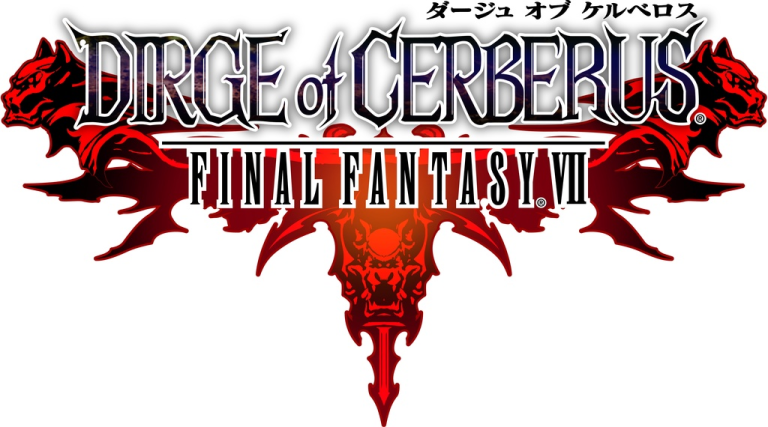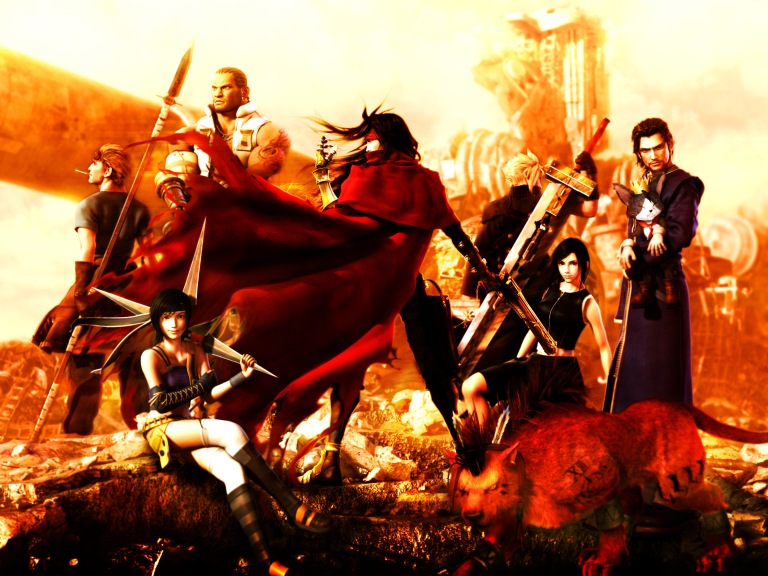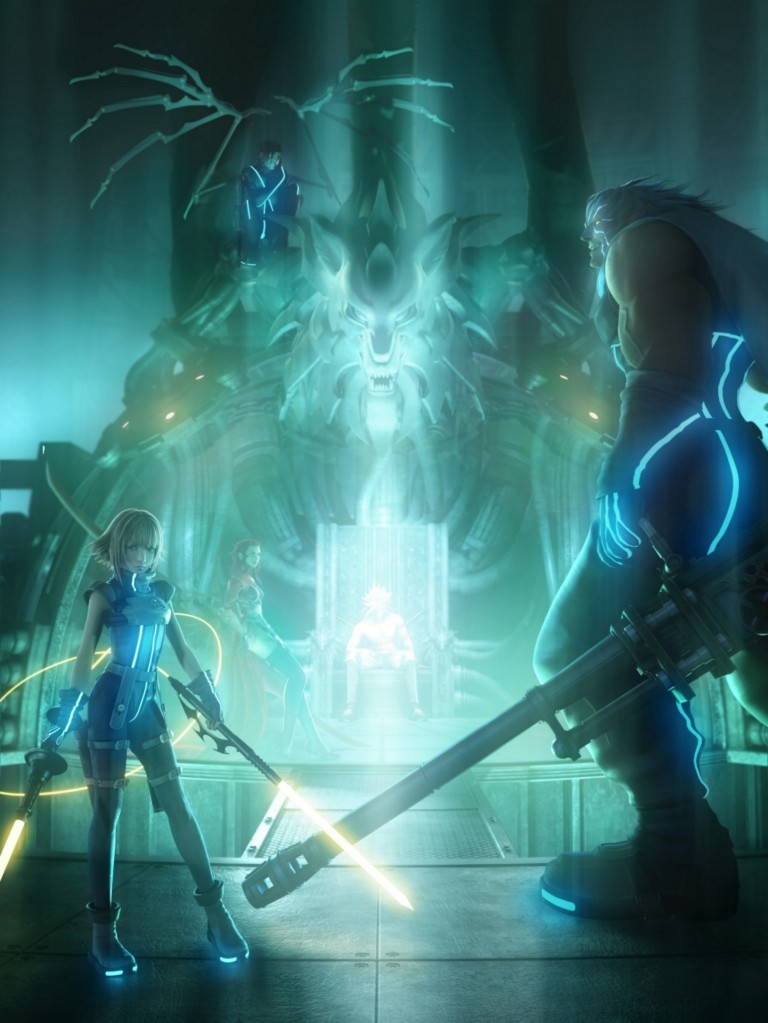"The time has come to cleanse this world."
Final Fantasy VII (1997) is one of those rare games that needs no introduction. Forgive the cliche, but unless you've been living under a rock or you're a Millennial there isn't a gamer out there who doesn't know Final Fantasy VII. Not only was Final Fantasy VII instrumental in creating one of gaming's most profitable periods, but even today a whopping 18 years after its release it's still one of the most popular titles in gaming and the most successful Final Fantasy that Square-Enix (Squaresoft at the time) ever released. So it came as no surprise that in 2002, Square-Enix launched the Compilation of Final Fantasy VII project which spawned a number of spin-offs from Final Fantasy VII. Think of this as FFVII's expanded universe which included a CG movie Final Fantasy VII: Advent Children, an anime, two cell phone games, a PSP game, and a PS2 sequel.
They will fight one last time.
Taking place three years after the events of Final Fantasy VII and one year after the events of Advent Children, Dirge of Cerberus: Final Fantasy VII centers on Vincent Valentine, AVALANCHE member and former Turk. The world has survived the meteor incident and the Second Coming of Sephiroth. The people have undertaken the hard work of rebuilding their lives and the even larger task of rebuilding a world brought to ruin. The citizens of Kalm are having a festival to celebrate the three anniversary of the meteor incident or more specifically the miracle that saved the world from destruction. Rather than join the celebration, Vincent broods in isolation. Tortured by the demons in his past and his own inability to move on, Vincent's psyche has become his personal hell. Suddenly, a wave of violence sweeps through Kalm as mysterious soldiers descend on the small town and massacre its people by the dozens. However, these soldiers also kidnap a select few townsfolk for purposes that can only be nefarious. Calling themselves Deepground, this army is lead by a group of elite superhumans called The Tsviets and the enigmatic Weiss The Immaculate. Vincent swoops into action, his questions punctuated by a hail of gunfire. Will Vincent's battle against Deepground save the world or will he drag it into an even darker hell?
Those Tron lines...
As a fan of the franchise I enjoyed learning more about Shinra Incorporated's dirty little secrets - particularly the Deepground soldiers and I liked the Tsviets as villains, but when you get down to it i.e. speaking objectively and not as a fan, they aren't entirely unique. The Tsviets have some very cool designs, but they're basically bad Metal Gear villains. The Tsviets are essentially the Beauty and Beast Corps. of Dirge of Cerberus. Each has their own character trait (bloodlust, apathy, pride, etcetera) you've seen before with a tragic past which you've seen before. Hiroki Chiba is a competent writer to be sure, but it's clear that the game's length hindered his ability to flesh out the Tsviets and differentiate them from the villainous stables you see in many other games. That's not to say it's all bad though. Shelke the Transparent is a member of the Tsviets who gets a lot of character development and while it seems rushed - given that the game takes place over a few days - Shelke was a round, dynamic character who changed considerably over the course of the game.
The art style delivers though.
Dirge of Ceberus won't win any beauty contests. While the PS2 was never a huge graphical powerhouse it did run some impressive games - this isn't one of them. Some of the environments in this game scream PS era with the framerate to match. Although the art direction is quite good with the Tsviets sporting some cool costumes. The environments, while not very detailed do resemble Final Fantasy VII at least aesthetically and it felt as though I was in Midgar all over again which was a big plus. Pretty much the only area where Dirge of Cerberus stumbles is in the actual "game" aspect. Dirge of Cerberus is a third-person shooter, but not a very good one. While the type of genre does make sense given Vincent Valentines weapon of choice, the gameplay is bare-bones and what's here barely holds together. There's very little strategy involved in the combat as it boils down to dodge the enemies' attacks and shoot them. The A.I. is virtually non-existent as enemies will rarely flank you and will often run directly into your gunfire. While they will sometimes hide behind cover, most won't. Groups of enemies will also stand by explosive barrels which make them easy pickings. The game doesn't get particularly difficult as you advance in the story apart from the game sending larger hoards after you. Vincent has a melee attack which isn't very effective, and in the time it takes him to kill an enemy with said attack the player could have shot him and moved on. Vincent can upgrade his signature weapon Cerberus with a scope, materia (magic), and he can change the barrel to increase damage or firing rate. Vincent also acquires a rifle and a machine gun, but I got through most of the game using the default weapon - thus making the upgrades and additional guns completely unnecessary. The boss battles don't require much strategy apart from dodge and shoot, but if you have enough items you can remove dodging from the equation altogether.




_enl.jpg)







